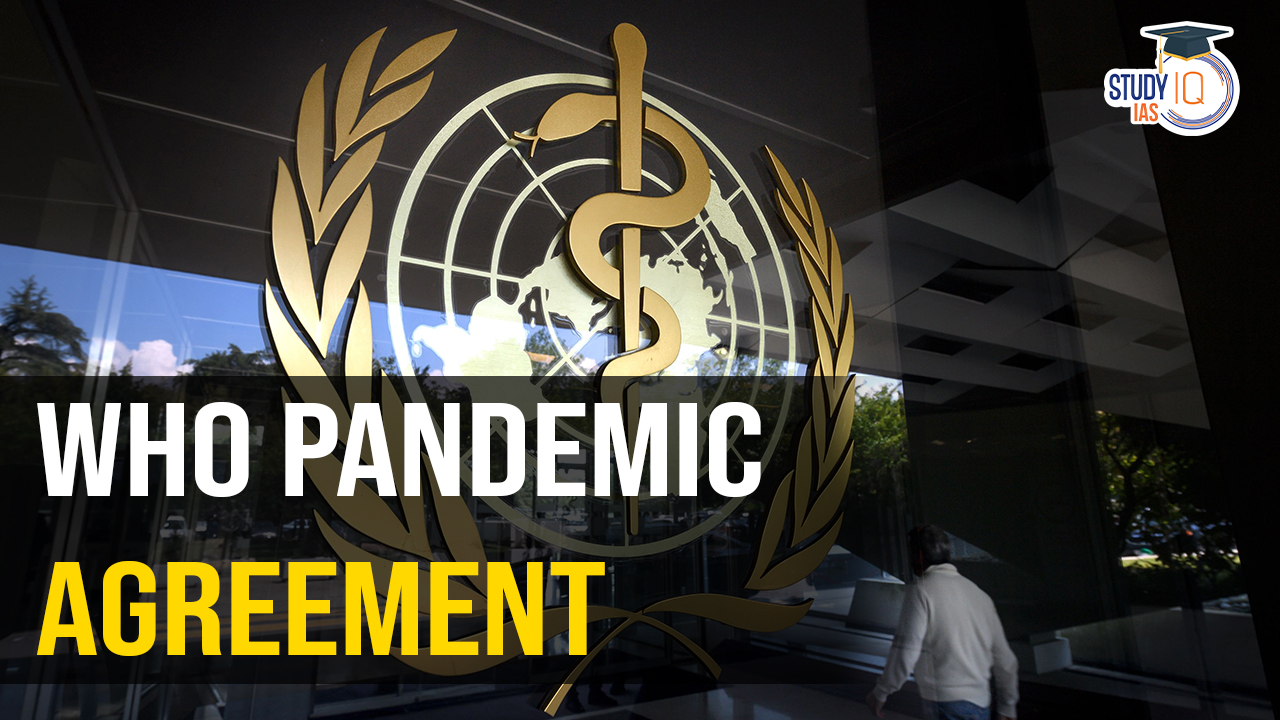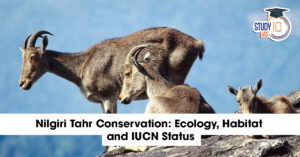Table of Contents
Context: The World Health Organization Pandemic Agreement might be in jeopardy of failing.
WHO Pandemic Agreement: An Overview
- Origin: Announced in March 2021 by world leaders, it’s being developed by the World Health Organization (WHO).
- Goal: Strengthen pandemic prevention, preparedness, and response, with a focus on equity.
- Respond to the disparities highlighted by the COVID-19 pandemic, including preparedness and international coordination.
Key Features
- Addresses issues like:
- Pathogen surveillance
- Healthcare workforce capacity
- Supply chain and logistics
- Technology transfer for vaccines, diagnostics, and treatments
- Antimicrobial resistance management
- Strengthening health systems and sanitation
- Universal health coverage
- Establishment of a WHO Pathogen Access and Benefit-Sharing (PABS) System for sharing pathogens and research benefits.
- Proposed a Conference of Parties (COP) to oversee implementation.
Concerns with the WHO Pandemic Agreement
- Data Sharing vs. Benefit Sharing:
- Developing countries’ concern: countries hesitate to share pathogen data (spread and evolution) without guaranteed access to research benefits like vaccines.
- COVID-19 impact: “Vaccine nationalism” during the pandemic worsened this concern.
- The WHO Pathogen Access and Benefit-Sharing (PABS) System:
- Proposed solution: A mechanism proposes a “quid pro quo” mechanism requiring countries to share genome sequence information with WHO in exchange for:
- 10% free diagnostics, therapeutics, and vaccines.
- 10% at not-for-profit prices.
- Disagreement:
- Developing countries: A robust PABS system, especially for low- and middle-income nations, is crucial for equitable access to medical countermeasures.
- Developed countries & pharmaceutical industry: Unhappy with the proposed benefit-sharing terms.
- Proposed solution: A mechanism proposes a “quid pro quo” mechanism requiring countries to share genome sequence information with WHO in exchange for:
- Enforcement and Accountability:
- Concern: The Agreement might be ineffective without strong enforcement mechanisms.
- Example: Existing International Health Regulations (legally binding) failed to prevent issues during COVID-19 like:
- Unjust travel/trade restrictions.
- Hoarding of vaccines and medical supplies.
- Uncertainties:
- Whether negotiators will agree on a decision-making body (COP with secretariat).
- Effectiveness of such a body.
- Intellectual Property (IP) Waivers: A proposal requiring companies receiving public funding to waive or reduce IP royalties on their products is a sticking point.
We’re now on WhatsApp. Click to Join
Looking Ahead
- Negotiation Deadline: The deadline for this agreement is set for the 77th World Health Assembly in May 2024.
- Challenges:
- Reaching consensus, potentially leading to a watered-down agreement.
- Wording around contentious issues like IP waivers might be weakened using phrases like “national circumstances” and “best endeavour”.
- Importance of Agreement:
- A critical step for rebuilding trust and international coordination.
- Acknowledges the global nature of pandemic threats.
- Failure to reach an agreement would be a setback.


 Graphic Processing Units (GPUs) – Work...
Graphic Processing Units (GPUs) – Work...
 Gold Imports and the Indian Economy – ...
Gold Imports and the Indian Economy – ...
 Nilgiri Tahr Conservation: Ecology, Habi...
Nilgiri Tahr Conservation: Ecology, Habi...




















